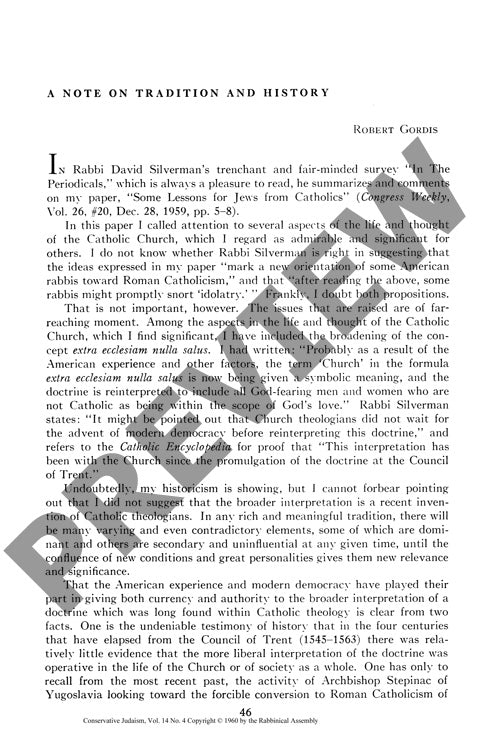A Note on Tradition and History
Couldn't load pickup availability
Religious traditions evolve not through wholesale abandonment or rigid preservation, but through leaders' strategic reinterpretation of doctrine in response to historical pressures. The Catholic Church's shifting stance on *extra ecclesiam nulla salus* ("no salvation outside the church") reveals this dynamic - while theologians had proposed broader interpretations since the Council of Trent, these gained practical significance primarily through specific historical circumstances, as evidenced by contrasting applications in Spain versus America. Responding to Rabbi David Silverman's commentary, Gordis employs comparative religious analysis to demonstrate how American democratic experience and modern conditions have influenced traditional Catholic doctrine's practical application. Judaism, lacking Catholicism's formal mechanisms for defining heresy, offers an even clearer window into tradition-history interactions. Rabbi Yohanan ben Zakkai's reconstruction of Judaism after the Temple's destruction exemplifies how religious leaders selectively draw upon traditional elements to address contemporary challenges. Through examination of both faiths, the analysis reveals that viable twentieth-century religious frameworks require both deep traditional resources and acute historical awareness - neither element alone suffices for meaningful spiritual life in modern contexts.

More Information
-
Physical Description
-
Publication Information
Published 1960
ISBN
-
Publication Credits
Robert Gordis

